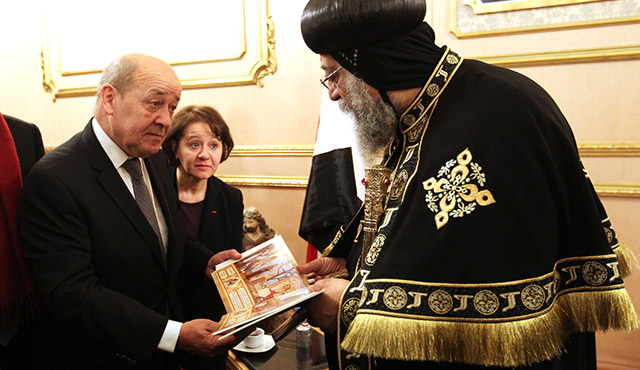NEW HAVEN, Conn. (CNS) — A new national survey conducted by the Marist Poll shows that a majority of Americans said they were well aware of atrocities committed by Islamic State militants against Christians and other religious minorities in the Middle East.
Nearly six in 10 Americans said they have heard “a great deal” or “a good amount” about the attacks by militants.
Fifty-five percent of those surveyed said the attacks on Christians and other religious minorities fit the U.N. definition of genocide. Thirty-six percent of respondents disagreed the actions constitute genocide.
The survey results, released Dec. 15, followed a Dec. 9 congressional hearing where those testifying urged the State Department to designate the situation genocide.
The Marist Poll was sponsored and funded in partnership with the Knights of Columbus, which has its headquarters in New Haven. The poll is conducted by the Marist Institute for Public Opinion, a survey research center in Poughkeepsie, New York.
The survey of 1,517 adults was conducted Dec. 1-7. Adults 18 years of age and older residing in the continental United States were interviewed in English or Spanish by (landline and cell) telephone, using live interviewers. The margin of error was plus or minus 2.5 percentage points.
The State Department is expected to soon declare that the Yezidis, a religious minority in Iraq targeted by the Islamic State since 2014, are facing genocide. Those at the hearing and many religious leaders hope also will produce something stronger than reserving judgment about the militants’ treatment of Christians.
At the Dec. 9 hearing of the House Subcommittee on Africa, Global Health, Global Human Rights and International Organizations, Rep. Chris Smith, R-New Jersey, chairman, said of the exclusion of Christians from the declaration, “That’s absurd! Such an indication would be contrary to the facts and tragically wrong.”
Rep. Dana Rohrabacher, R-California, citing a House resolution under consideration, said he thought the United States should recognize the situation as genocide “just as we should have recognized the Jews in 1939.”
“An official government declaration of genocide is an opportunity to bring America’s religious communities together to pursue the truth, to support victims and to bear witness to the noble principle of ‘never again,’” Carl Anderson, supreme knight of the Knights of Columbus, said in testimony at the hearing.
Anderson also asked that the government end its “sole reliance” on the U.N. High Commissioner for Refugees and its criteria for identifying what refugees should be resettled, “and engage private contractors to identify, document and refer Christian, Yezidi and other vulnerable minority refugees from Syria and Iraq who are in need of resettlement.”
On Dec. 4, 30 Christian leaders, including Cardinal Donald W. Wuerl of Washington, asked for a meeting with Secretary of State John Kerry to discuss the designation of genocide, but to date there has been
In Rome, Chaldean Catholic Patriarch Louis Sako of Baghdad, Iraq, told Catholic News Service Dec.10 that the survival of Christianity in the Middle East has reached such a critical point that the chances of dialogue and reconciliation in the region are being threatened.
“The situation is very bad, very critical and always violent,” Patriarch Sako said “Last year in August, 120,000 Christian people were expelled from their homes, their villages and now they are living in some camps with nothing, but the church is helping them.”
The Islamic State and “fundamentalists don’t accept anything that doesn’t fit with their vision of Islam,” he said. “This is a kind of purification and, of course, Christians and other minorities are a target.”
A designation of genocide has policy implications for U.S. efforts to restore property and lands taken from the minority groups and for offers of aid and asylum to the victims. It also could produce considerable pressure for additional U.S. military intervention in the region.
According to the United Nations in its 1948 convention, genocide means committing acts with the intent to destroy, in whole or in part, a national, ethnical, racial or religious group. Those acts include: “killing members of the group; causing serious bodily or mental harm to members of the group; deliberately inflicting on the group conditions of life calculated to bring about its physical destruction in whole or in part; imposing measures intended to prevent births within the group; forcibly transferring children of the group to another group.”

